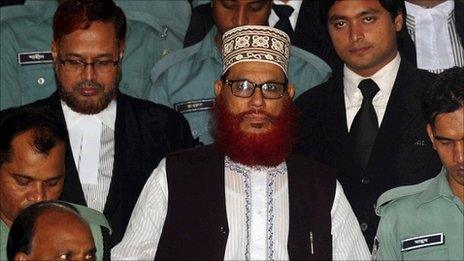Bangladesh cleric Abul Kalam Azad sentenced to die for war crimes
- Published
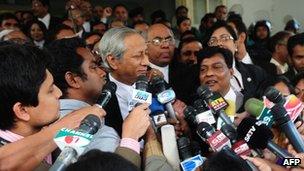
Bangladeshi attorney general Mahbubey Alam speaks to reporters outside the court
A court in Bangladesh has sentenced a well-known Muslim cleric to death for crimes against humanity during the country's 1971 independence war.
Abul Kalam Azad's conviction is the first verdict handed down by the controversial tribunal.
The cleric, a presenter of Islamic programmes on television, shot dead six Hindus and raped Hindu women during the war, prosecutors said.
He is thought to be in Pakistan and was found guilty in absentia.
BBC Bengali editor Sabir Mustafa says the verdict is being seen as a triumph for Prime Minister Sheikh Hasina, who has made prosecuting war crimes a key goal of her government.
Critics of the tribunal, however, say the charges against Maulana Azad and others are politically motivated. The court is not endorsed by the United Nations.
Tribunal officials said Maulana Azad's family failed to co-operate with his court-appointed defence lawyer, and they did not provide any witnesses to testify on his behalf.
As a result, the case was concluded fairly quickly.
Mr Azad was a junior leader in the student wing of the Jamaat-e-Islami party in 1971 and a member of the Razakar Bahini, an auxiliary force set up to help the Pakistani army by rooting out local resistance.
The Razakars were notorious for their operations targeting Hindus as well as civilians suspected of being sympathetic towards Bengali nationalists.
The International Crimes Tribunal was set up by the Awami League-led government to try those Bangladeshis accused of collaborating with Pakistani forces who attempted to stop East Pakistan (as Bangladesh was then) from becoming an independent country.
Those charged include a number of senior Jamaat leaders and a former minister from the opposition Bangladesh Nationalist Party (BNP).
All of the people currently indicted by the tribunal deny the charges and opposition leaders accuse the government of carrying out a political vendetta.
Bangladesh government figures estimate more than three million people were killed during the independence war, although some researchers put the figure at between 300,000 and 500,000.
- Published21 January 2013
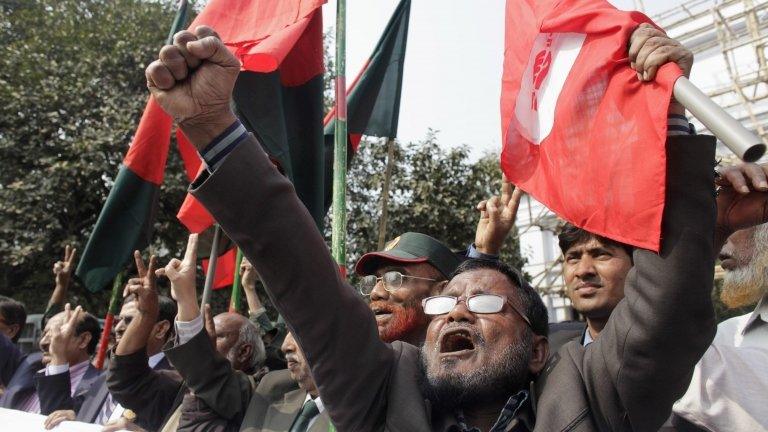
- Published4 September 2016
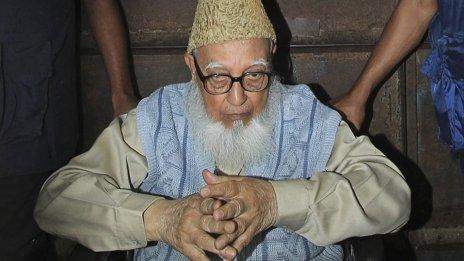
- Published4 December 2012
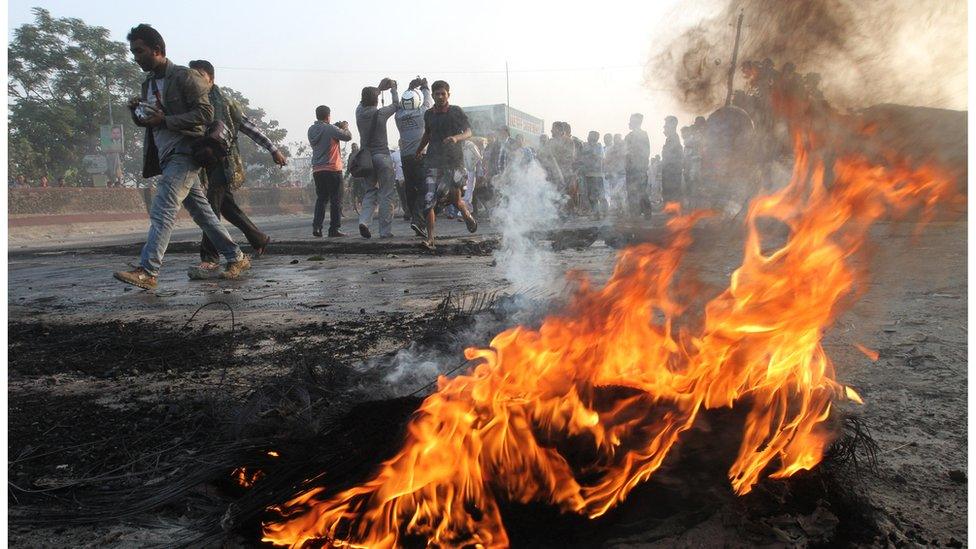
- Published28 May 2012
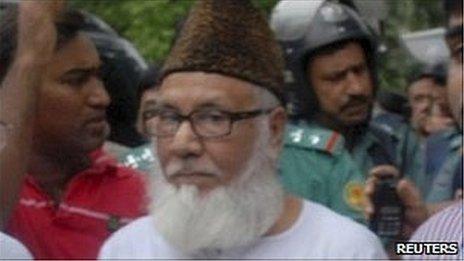
- Published20 November 2011
